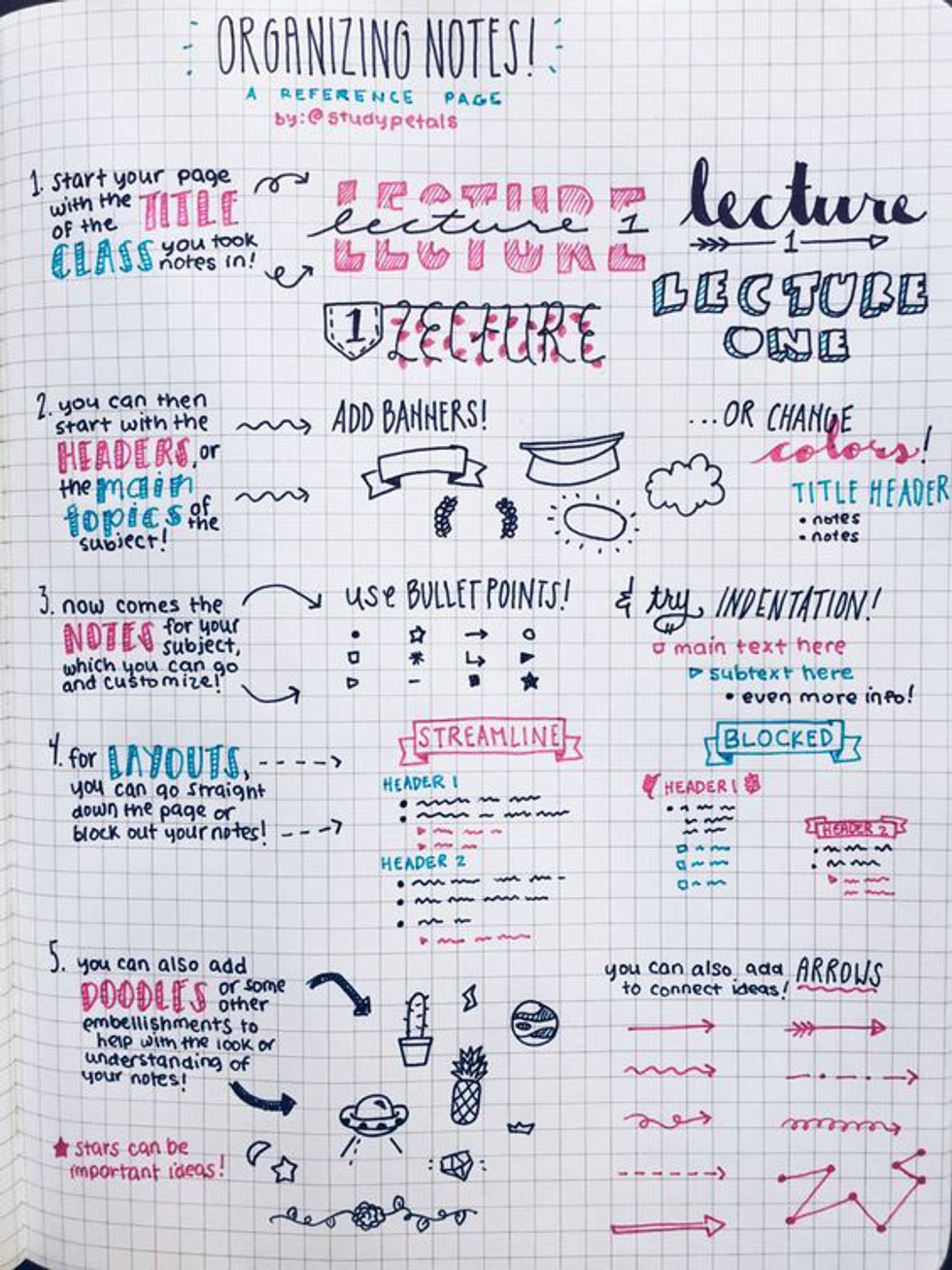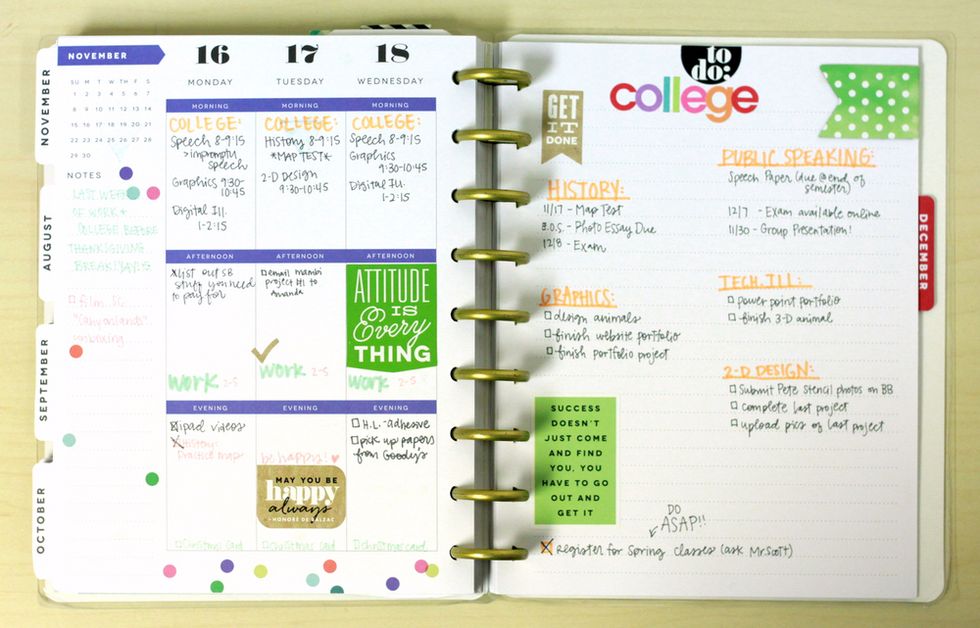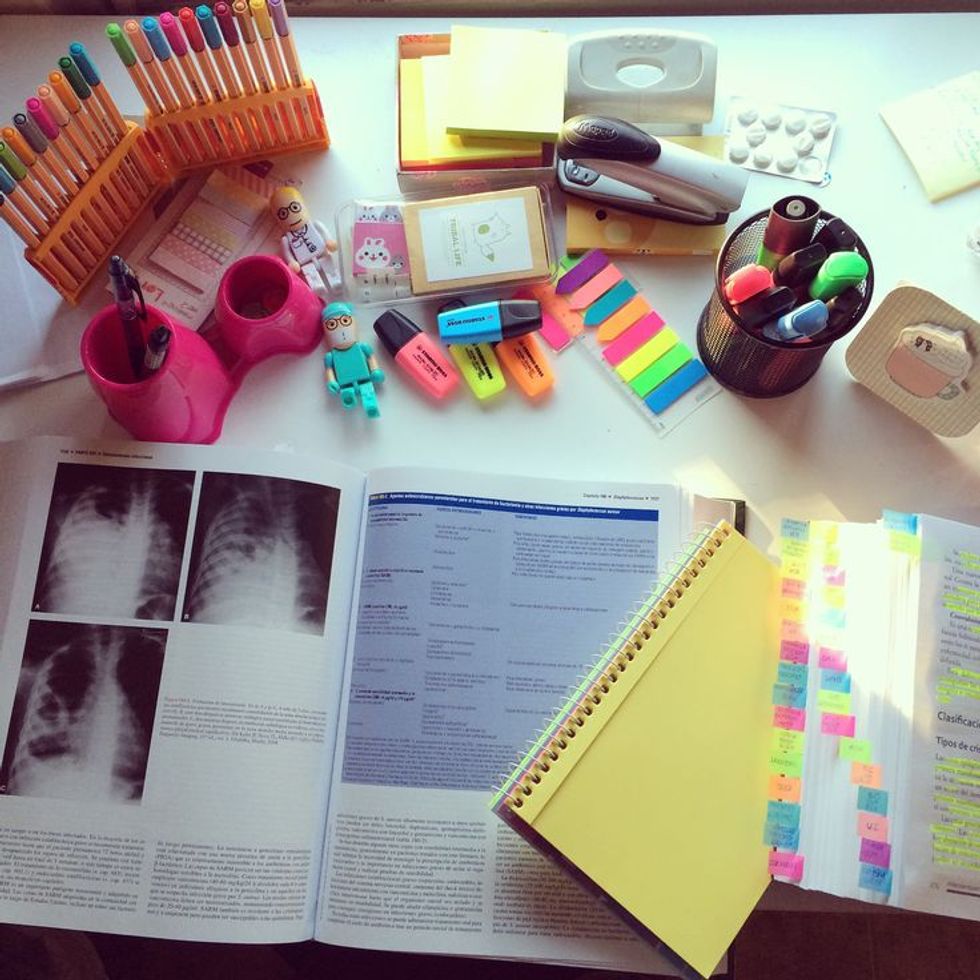College is a transition, whether it be big or small. You have so much more freedom, and time that you don't know what to do with. Regarding this, you can get so much advice as to what you should use your time for: Greek life, getting involved with clubs, a job, partying, etc. In four words, I can give you the best college advice you could ask for: USE YOUR TIME WISELY.
Yeah, yeah, college is fun and you can be social and all, but remember you are there to learn. Don't forget you're paying thousands of dollars a year to attend actual class, not just party. I am paying $1,031.18 PER CLASS for just my fall semester.
So, for starters, go to class, and actually study for them. From a girl that didn't study in high school, here are some tips to help you study and not just pass your classes, but actually retain the information (crazy right?!).
1. Note taking is a necessity
Yes, professors talk really fast, but they are also giving you all the information you need to know for the class. The books just doesn't explain everything as well all the time. So learning to take notes is extremely beneficial.
Oh, and I would hand-write them. There are all kinds of studies that show that you better retain things if you write them down. I'm not saying you absolutely cannot type your notes if that's quicker and easier for you, but maybe you should go back after class and rewrite them.
Also, when you write your notes, make them as organized as you can. If that means going back after class and fixing them, do what you have to. It is better to spend the extra time to understand them later, than trying to cram for a test and not understanding what you wrote.
I had never taken notes until I got to my Plant Biology 103 Lecture and the first day of class we were taking notes on molecular biology. It took me a while, but now my notes are easier to follow, and I can actually study off of them.
2. Reading is a responsibility
Yes, the book may include way too much information, and it may not explain things the same way as your teacher, but it is a great resource. When you are confused on a subject, or need more information on something, you can always look back to the book. A
lways read the book when the teacher assigns a chapter or section. You never know what may be on a test, or what could be brought up in class the next day. It is better to be over-prepared than to be lost and behind.
And guess what? Notes can also be taken from the book! If you bought the textbook, mark it up with highlighters, pens, whatever helps you! If you rented it, use sticky notes to mark important concepts, and take notes in a notebook.
I had never actually written in my books until I got to college and I walked into my Honors class and my teacher asked to see my notes on Chapter 1. I was not prepared, and I was confused in class because I had no notes to look back on.
3. Calendars save lives
On the first day of class, you will receive your syllabus with a schedule of all exams and sometimes quizzes. This information is something that will most likely not change, especially in a lecture class, so you should seriously take note of it.
Get a calendar or planner, and write all of your test dates down. Seriously. You will forget them. Plug them all in and you'll get subtle reminders that you have that coming up.
If you're not a written planner person, or you're more likely to be found on your phone, Google calendar is great. I use Google calendar on my phone to keep track of everything digitally, but I also have it written down just in case. This may seem like overkill, but it works best for me to remember things.
I didn't need to actually write things down in high school because my schedule was very predetermined, but in college with all that freedom it really helps to have everything you need written out. Remember that everyone gets the same 24 hours in a day, and you need to use yours as beneficially as possible.
4. Plan out specific study time
So once your schedule is in your planner, you need to add actual study time in. This is when you ask yourself important questions:
When do I study best?
Do I study better alone or in a group?
What study environment is best for me? The dorm? The library?
These questions will help you decide your study times and once you do, write them in the calendar! I am still working on sticking to my study plan in college... I lack a lot of will power when it comes to studying because I'm not used to it, but it is definitely getting better since I've been getting reminders on my phone: "STUDY!!!"
5. Studying now = success later
There are so many things I know that I would rather be doing than studying, but I know that I need to do it. One of the hardest concepts for me to grasp is that you need to study everyday. When professors say that, they aren't kidding. You actually have to review everything that you did in class, everyday because you never know when there's going to be a quiz.
Oh, and your test is in 2 weeks? Start reviewing now. NOTHING is worse than cramming for an exam. I tried to do that with my first biology exam, but there was so much information to review in 2 days. I started to stress and ended up getting easy questions wrong on the test because I didn't take the time to start studying earlier. Now, my chemistry test that's in 2 weeks, I've already started studying for that.
My personal experience
By doing these 5 things, I have made my life more organized and bettered my study habits. I am currently still working on making sure I stick to my study plan, but it is going a lot better.



















